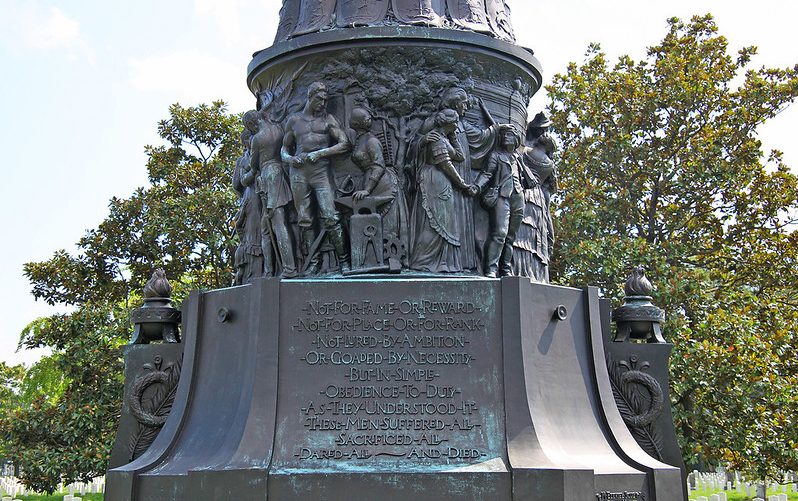
Winning Hearts and Minds: How the United States Lost the Civil War
The age-old aphorism “History is written by the victors” exemplifies the belief that, whoever wins a conflict, writes the history books in favor of themselves and their message. In effect, with one’s goals accomplished and victory gained, they are able to construct the future’s telling of this battle, war, or event to better suit their own desires. This belief is often incorrect and does not account for a substantial number of historical events in which the “losers” of a conflict or event have written history to suit themselves. In the United States, perhaps the most prevalent form of pseudohistorical and false thought is our nation’s collective understanding of the U.S. Civil War.

Traitors to Their Country: The Argument for Removing Confederates from the Arlington National Cemetery
The U.S. Civil War began on 12 April 1861 and would end four years and fourteen days later on 26 April 1865. While exact numbers of the ceased are unknown, it is estimated that some 750,000 Americans died in the conflict, some 360,000 dying for the United States and 260,000 dying on the Confederate side. The conflict forever changed the course of American history and was a monumental development from a social, political, legal, and economic perspective.
However, in the decades after the Civil War, partly due to the promulgation of Lost Cause myths, a more positive view of the Confederacy and their military has evolved.

The Impact of Citizen Journalism in Syria
In 2011, during the “Arab Spring”, groups of citizens in the Arab world started to protest their national governments. To have better inter-group communication and to organise public rallies and protests, citizens used social media platforms. Those directly involved in these events reported everything on social media, becoming sort of reporters, warning the world of what was happening in real-time. This article analyses the media coverage of the Syrian civil war, with a closer look at cases of citizen journalism and the effects on Syrian citizens.

